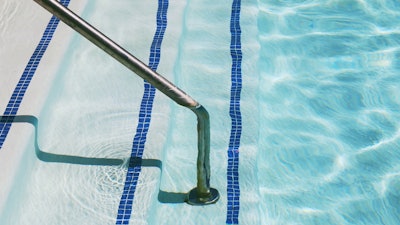
A proposed water safety bill in Florida would create a voucher program for young children to receive swimming lessons at no cost.
The bills were proposed last week by Florida Senate and House Republicans, WPEC-TV reported. The bills would direct the Florida Department of Health to develop a program that would contract with vendors to provide swimming lessons to children ages 4 or younger.
Sen. Travis Hutson (R-St. Augustine) and Rep. Demi Busatta Cabrera (R-Coral Gables) filed the bills (SB 544 and HB 581) for consideration during the 2024 legislative session, which will start Jan. 9, WLRN-TV reported.
Florida swimming instructor Christina Theiss has been teaching people how to swim since she was 16, and she owns Swim With Gills, which helps swimmers gain confidence in the water.
"It’s never too early to learn how to swim and it’s never too late to learn to swim," Theiss told WPEC-TV. It’s our big, bold, beautiful mission of changing and saving lives every day — of teaching children with all abilities and all skill levels."
Florida state leads third in the U.S. for unintentional drowning deaths, according to Florida Department of Health, as reported by WPEC-TV.
Theiss said learning how to swim can start as early as 6 months old.
“When we get them when they’re younger and we can get them comfortable, we can begin to progress their skills and their water confidence,” Theiss said.
But swim lessons are out of reach for some families that have to focus their finances on the basics. Theiss said there are local vouchers that help lower the cost of lessons, but some parents are still forced to pay out of pocket.
“Sometimes they can’t afford it, they can’t," she said. "And we never want to turn anybody away, so we do our best to not turn anybody away."
With the proposed state-backed voucher, the program would be available to families earning up to 200 percent of the federal poverty level, or $60,000 for a family of four.
Theiss said the lessons provided by vouchers could save lives.
"That’s why water safety begins with water education, and it's not just educating the children, but it's educating the parents,” Theiss said.
WPEC-TV reported that the bills don't estimate the cost the bill would create, but it states the Department of Health "may seek grants or other public or private funding for the program."





































